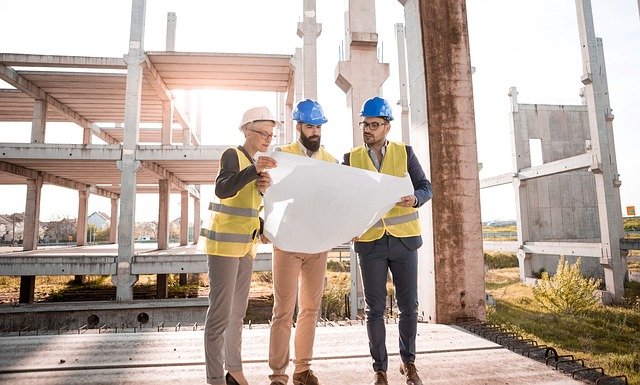
Finding your dream home with all the unique features within your budget and in the perfect location can be challenging. However, with a construction loan, you can build your dream home from scratch without making compromises. A construction loan is high-interest, short-term financing that you can use to custom-build your home.
It covers land acquisition costs, building materials, construction permits, labor, contingency and interest reserves, closing costs, and plans. Discussed below are the things you should know before taking out a construction loan.
1. How construction loans work
Construction loans entail more lender involvement. Before approving your loan, the lender must review your projected budget estimates, detailed construction plans, and construction timelines to decide on your loan amount. Upon approval, the money is sent to the contractor in intervals as the construction work progresses. Before the lender can release any additional funds, reliable and experienced construction funds control experts such as Northwest Construction Control have to inspect the construction stages to determine if the amount spent marries with the progress made.
If the appraisers approve, the lender makes more draw payments to the contractor. During the construction phase, most lenders need interest-only payments. Once the project is complete, you can begin repaying your loan. You may repay the construction loan in full or turn it into a conventional mortgage loan.
2. Types of construction loans
Construction loans differ depending on your construction needs and may include:
- Construction to permanent: This loan turns to a conventional mortgage upon the building phase completion, where you only pay one closing cost set
- Construction only: This type of loan covers house building costs only and requires for the loan to be repaid in full within a year after the project’s completion or refinanced into a mortgage
- Renovation: This loan is ideal when you want to buy a home and perform significant renovations, and the loan amount usually depends on the home’s expected value after renovations
- Owner-builder: This type of loan is a good option when the borrower is a contractor. It can only be acquired with the proper education certification, expertise, and a contractor’s license
- End loan: This is a mortgage involving a loan at the construction phase end. This type of loan is ideal where lenders don’t offer construction to permanent loans
3. Construction loan rates
Construction loan rates vary based on the loan size, terms, and the borrower’s creditworthiness. They have variable interest rates, meaning they change over the loan course depending on an index. Since construction loans are riskier, their interest rates are usually around one percentage point more than standard mortgage rates.
4. Construction loan requirements
The construction loan approval process is usually very rigorous, since the loan isn’t secured and doesn’t involve collateral. In addition to meeting traditional borrower standards, the lender will inspect and approve construction timeline estimates, proposed budget, and architectural plans. To win the construction loan approval, make at least a 20% down payment, ensure you’ve got a great credit score, low debt to income rate, sufficient earnings to pay off the loan, construction and project budget approval, and general contractor or builder approval.
5. What to consider about construction loans
Before applying for a construction loan, consider significant project timeline concerns by consulting your contractor regarding your home’s building timelines and other factors such as materials shortage that might slow down the construction project to plan adequately. Instead of taking two or more different loan types, you can consider construction to permanent loans to avoid multiple closing costs and other costs for obtaining the loan.
Your lender may also need a prepaid homeowners insurance policy, including the builder’s risk coverage, to ensure you’re financially protected should anything go wrong during the construction process.
6. How to choose a construction loan lender
Choosing a construction loan lender can be overwhelming. However, putting effort and research into it can help you find a lender that suits your unique needs. When choosing a lender, consider the construction loan types they offer, available interest rates, closing costs, and other fees. Find out if you can use your land equity towards your down payment, how they pay construction draws, and if the contractor can request a draw to cover material costs.
Consider looking at multiple lenders to see their specific procedures and programs. Compare their down payment, loan rates, and terms to find the best deal. Choose a lender you’re comfortable working with and trust as you’ll be working together throughout the construction process.
Endnote
Owning your dream home doesn’t have to be an impossible mission. With a construction loan, you can build your home from scratch and customize it to your satisfaction. Refer to this article for all you need to know before taking a construction loan.
